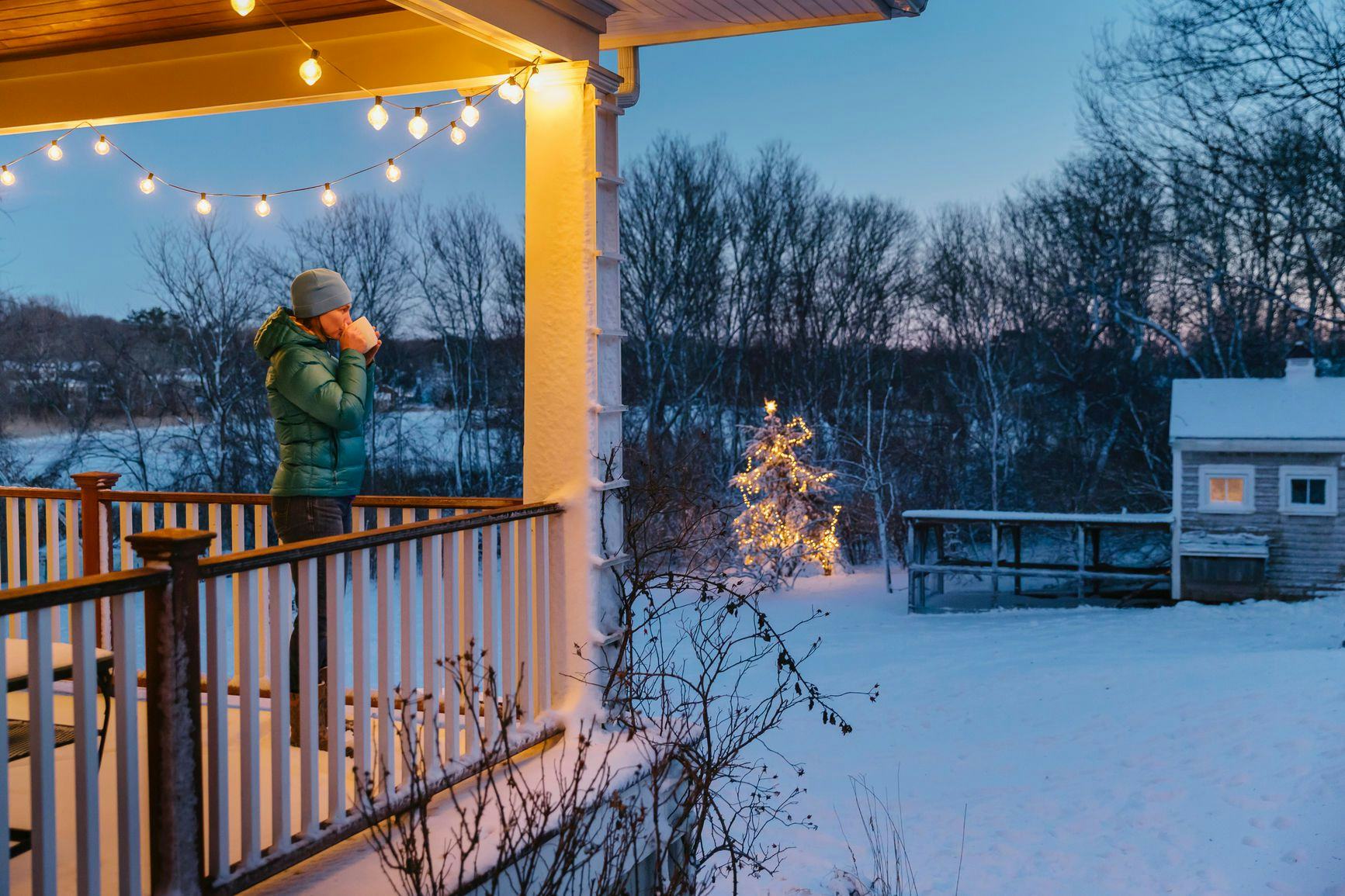Why winter can be a great time to remodel
Most homeowners plan their renovations for the summer months because weather conditions are more suitable when considering all of the inconvenience that comes with a remodeling project. The work can be messy, loud, and dirty, and summer weather makes is easier to escape outdoors.
While remodeling in the winter months may require more planning to avoid disruption, you could get a great deal on the work, particularly in the Northeast and Midwest, where the seasons are more pronounced.
With fewer homeowners wanting to remodel in the winter, contractors are not as busy, which means you may be more likely to get a better price.
“If you are going to do that home renovation, get it on discount while you can, during the winter," says contractor Andrew Hecox, owner of Air Capital Roofing and Remodeling in Wichita, Kansas. “Sure enough, when the contractor's workload piles up during peak season, so will the prices."
You may find cheaper materials as well, since home improvement sales tend to slow in the colder months. If you're doing renovations in order to sell your property, doing so during the winter season will mean that your home is move-in ready just in time for the spring-summer selling season.
So, a winter renovation could save you money and improve your chances of selling, and here are some more tips to help with your planning.
Don't write off exterior projects
You might not be considering an exterior project because of cold weather in the winter months, but don't let the lower temperatures stop you. Contractors are used to working in the cold, so it's worth asking about outdoor projects, such as a deck and room additions. There are other external jobs that could be worth tackling at this time of the year too, like replacing your windows or doors.
Window and door replacements can have the added effect of improving your home's efficiency, saving you money on heating and cooling bills. They're also among the best projects for homeowners to see a return on investment. Homeowners recouped 91 percent from entry door replacement work, according to a 2018 report by Remodeling magazine.
Of course, there are some projects that simply don't turn out well in the winter, as cold weather can have a real impact. Even if it's not snowing, for example, it takes longer for roofs to adhere and exterior paint to dry when the temperatures drop.
Go for more expensive interior projects
Consider doing your biggest internal home improvement projects in the winter, since you're more likely to get a discount and contractors will often be less distracted by other clients.
Jerryll Noorden, a real estate investor and owner of WeBuyHousesInConnecticut, says that he received price breaks of 25 percent to 30 percent in the winter. “If you do the work that costs the most money in the winter, you get the biggest discount," he says. “Then you can space out the smaller stuff afterward."
Shop around
Get bids from several contractors before selecting the best one for the project. During winter months, they may be more willing to compete on price with each other than they would during busier times of the year.
Ask about air quality
When you're interviewing contractors, talk to them about their dust removal measures and ventilation systems, to make sure that you won't have any air quality issues while the work is happening inside.
Have a financing plan
If you do opt to do a large project this winter, you'll also need a plan to pay for the work. If you don't have the cash to pay for the project outright, you'll need to consider a range of financing possibilities.
One smart option may be to use your home equity to pay for it via a home equity loan or line of credit. Home equity loan solutions typically carry lower rates than personal loans or credit cards, and you may be able to deduct the interest if you're using the proceeds from the loan to pay for home improvement. Always consult with a tax advisor before making these decisions. Borrowing against your house to pay for home improvement projects makes the most sense if you're doing projects that will improve the value of your home.
So when it comes time to finally get around to that remodel project, think smart and look at scheduling it for the winter months.
Check out our other seasonal checklists: summer, fall, and spring. You can also use our home improvement guide to learn how to budget, plan, and execute your house repairs.
